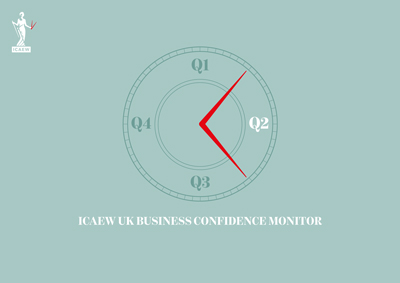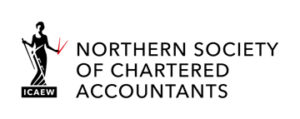EGM called by Northern Society of Chartered Accountants
19 September 2023
Notice is given that the...
The latest ICAEW UK Business Confidence Monitor (BCM): Northern England report sets out that at Q2 2022: business sentiment weakening across most of the UK. As economic conditions tighten, businesses are facing significant challenges, particularly on the supply-side, that could hinder future growth. Input costs are increasing sharply, while salaries are rising in response to recruitment difficulties and labour shortages. This is despite companies experiencing strong sales growth as they continue to recover from the pandemic.
 The results are based on telephone interviews with ICAEW Chartered Accountants that took place between 17 January and 21 April 2022.
The results are based on telephone interviews with ICAEW Chartered Accountants that took place between 17 January and 21 April 2022.
Transport problems also remain a prominent growing challenge, while the tax burden has moved to the fore.
The Business Confidence Index for Northern England has weakened markedly in Q2 2022. At +12.9, the region stands at the lower end of the index, with only companies in Scotland having a lower reading. As in most other regions in the UK, while businesses are achieving healthy increases in sales, they are also having to contend with a number of growing challenges, particularly with respect to labour market frictions and higher input costs.
Businesses are currently seeing strong sales growth, following the low levels during the pandemic. In domestic markets, sales increased by 5.7% year-on-year in Q2 2022, the fastest rate since mid-2008. And in the year ahead, businesses anticipate a further rise. Export growth has been more modest, at 2.6% in Q2 2022, marginally slower than the national figure. The outlook for exports is also fairly muted, meaning that only companies in the North West have weaker expectations. It is possible that Brexit-induced trade frictions could be playing a role here, given that exporters in the region are among the most reliant on the EU market.
Business sentiment is being weighed down by mounting cost pressures. Against a backdrop of supply-chain disruptions and heightened global commodity prices, annual input price inflation in Q2 2022 stands at 4.5%. This is the joint fastest rate, along with Wales and Yorkshire & Humber, across the UK. Further still, businesses expect input price inflation of 5% over the next year, which is the strongest projection across all UK nations and regions. The motor manufacturing and chemicals sectors, both important in the north, are particularly exposed to global cost rises.
To try and offset this, businesses are pushing up their selling prices charged to customers. In the year to Q2 2022, selling prices are 2.6% higher than the previous 12 months and a 3.1% increase is planned for the coming year. The net effect of higher prices and sales is that profits are growing sharply. These increased by 5.0% in Q2 2022, with similar growth forecast.
As well as input cost pressures, businesses face higher labour costs. Employment growth has picked up, increasing by 2.6% in Q2 2022, and is expected to be 3.1% higher by Q2 2023. Average total salary growth has also gathered pace, with a 3.1% rise over the last year. This marks the sharpest increase in over a decade. A similar 3.2% rise is planned for next 12 months.
Higher salaries appear to be an attempt by businesses to tackle the current labour market difficulties they face. These difficulties stem from companies all trying to recruit workers at the same time, and have been exacerbated by post-Brexit limits on hiring workers from the EU, and by people exiting the labour market during the pandemic. Indeed, the availability of non-management skills is a growing issue for 45% of companies, the highest rate seen in the region since the survey began. Staff turnover is also a growing source of difficulty for 40% of businesses, the joint highest rate ever seen in the region, alongside the previous quarter.
The proportion of companies being increasingly challenged by transport problems (29%) is well above the region’s historical norms. This may reflect ongoing shortages in the supply of HGV drivers, as well as port delays due to Brexit. Another challenge that has risen in prominence is the tax burden. This is now a pressing issue for just under a quarter of companies, the highest rate in the region since mid-2011.
The recovery in demand, coupled with emerging capacity constraints, has caused businesses to boost their investment plans. Growth in both capital investment and Research & Development (R&D) budgets have returned to pre-pandemic norms, at 3.6% and 2.5% respectively. Companies also plan further, albeit slower, increases over the next year, of 2.3% and 1.8% respectively.
Find out more about the ICAEW UK Business Confidence Monitor at icaew.com/bcm
 Northern Society of Chartered Accountants (NorSCA) represents 4,000 ICAEW members and ACA students working in business and the finance profession across the North East of England, Teesside, northern Yorkshire and Cumbria.
Northern Society of Chartered Accountants (NorSCA) represents 4,000 ICAEW members and ACA students working in business and the finance profession across the North East of England, Teesside, northern Yorkshire and Cumbria.
We have been assisting businesses in the north of England and producing chartered accountants for over 140 years.
 There are more than 1.8m chartered accountants and students around the world and 189,500 of them are members and students of ICAEW. They are talented, ethical and committed professionals, which is why all of the top 100 Global Brands employ chartered accountants.*
There are more than 1.8m chartered accountants and students around the world and 189,500 of them are members and students of ICAEW. They are talented, ethical and committed professionals, which is why all of the top 100 Global Brands employ chartered accountants.*
ICAEW promotes inclusivity, diversity and fairness. We attract talented individuals into the profession and give them the skills and values they need to build resilient businesses, economies and societies, while ensuring our planet’s resources are managed sustainably.
We’ve been at the heart of the accountancy profession since we were founded in 1880 to ensure trust in business. We share our knowledge and insight with governments, regulators and business leaders worldwide as we believe accountancy is a force for positive economic change across the world.
We believe that chartered accountancy can be a force for positive change. By sharing our insight, expertise and understanding we can help to create strong economies and a sustainable future for all.
Founded in 1880, we have a long history of serving the public interest and we continue to work with governments, regulators and business leaders around the world. And, as an improvement regulator, we supervise and monitor over 12,000 firms, holding them, and all ICAEW members and students, to the highest standards of professional competency and conduct.
ICAEW is proud to be part of Chartered Accountants Worldwide, a global network of 750,000 members across 190 countries, which promotes the expertise and skills of chartered accountants on a global basis.
ICAEW (Institute of Chartered Accountants in England and Wales) is a founder member of Chartered Accountants Worldwide and the Global Accounting Alliance.
*CAW, 2020 – Interbrand, Best Global Brands 2019
Share this article...
Tweet